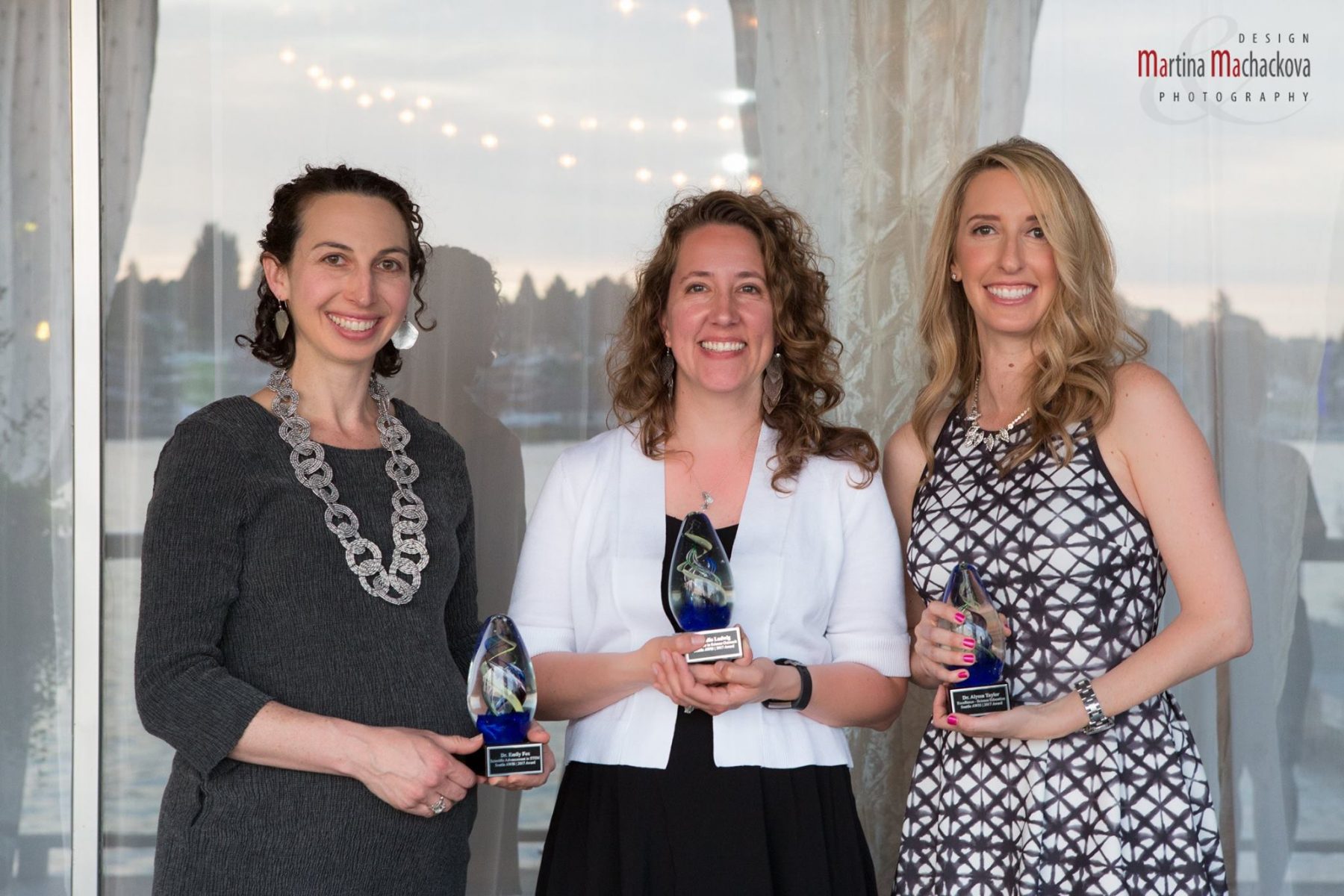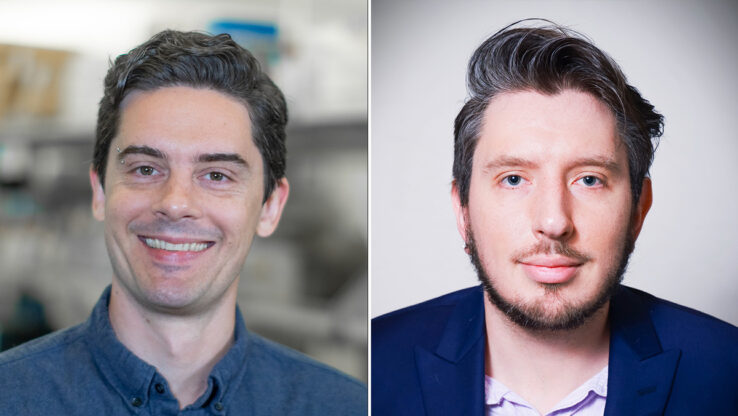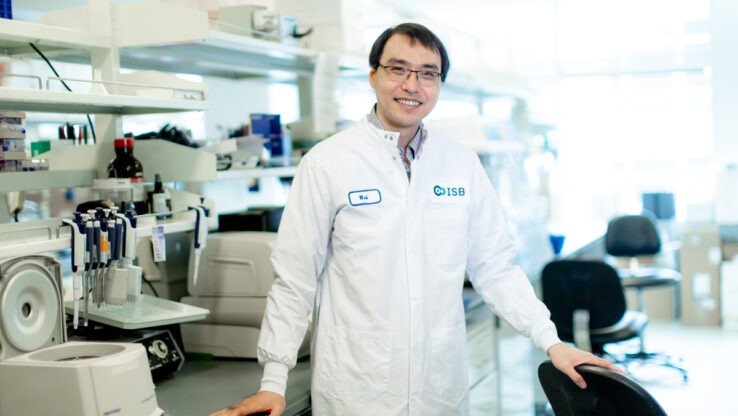Awards: Claudia Ludwig Receives AWIS Award
 isbscience.org/news/2017/06/09/awards-claudia-ludwig-receives-awis-award/
isbscience.org/news/2017/06/09/awards-claudia-ludwig-receives-awis-award/
Photo above: ISB’s Claudia Ludwig, MEd (center); Emily Fox, MEng, EE, PhD, for outstanding scientific advancement in STEM (left); Alyssa Taylor, PhD, for excellence in science education (right). Credit: courtesy of AWIS and photographer Martina Machackova
Congratulations to Claudia Ludwig, Director of Systems Education Experiences (SEE), on receiving an award from the Seattle chapter of the Association for Women in Science for Excellence in Science Outreach. The ceremony to honor award winners took place on June 6.
Learn more about Claudia’s work at: see.isbscience.net
Watch this video about SEE, which was featured in the National Science Foundation’s 2017 STEM for All Video Showcase: stemforall2017.videohall.com/presentations/1014






